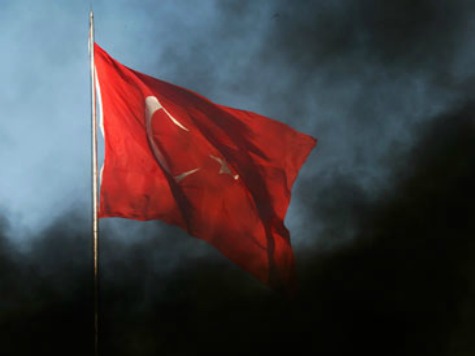As forces loyal to the Islamic State reach the Turkish border, the British defence secretary has called for the parliamentary mandate for military action to be extended from Iraq to Syria, and for Turkish forces to cross the border and engage ISIS.
Secretary of state Michael Fallon appeared to be venting his frustration at being unable to commit forces to help save the strategic Kurdish border town of Kobane, which has now been under siege by ISIS for some days.
While many in the defence community have acknowledged that without targeting ISIS in both Iraq and Syria the mission to destabilise the nascent state would probably fail, Fallon’s tacit admission that Labour and the Liberal Democrats oppose the move means the UK will remain engaged in Iraq only for the time being, as reports the Daily Telegraph.
As a neighbour to the Islamic State, Turkey is the NATO member with most to lose from the expansion of radical Islam, however a combination of factors has meant the powerful nation has not yet taken an active role in the conflict. Despite the difficulties that remain, Turkey has voted to join the conflict and full engagement is now just a matter of time. Regardless, Fallon insists Turkish cross-border deployment cannot come soon enough: “This is a situation that can only be resolved not just by America and by Britain, but by the region itself.
“So we certainly would like to see Turkey more involved. But in the end it’s a decision for their government”. Turkey’s long-running conflict with the Kurds, who have become a key ally in the defence against ISIS for many nations including Germany and the UK has slowed progress, as has the refusal of other allied nations to deploy ground troops, which Turkey says are an essential prerequisite for involvement.
Turkey has faced repeated accusations over recent weeks that its sitting idly by during the slaughter of Kurdish forces immediately across the border is a deliberate act, a situation which is exacerbated by Turkey using its military to prevent other Kurds going south to join the fight against ISIS. Fourteen have died in riots across Turkey this week as native Kurds take to the streets to protest against what they see as their government allowing ISIS to do its dirty work before getting involved.
Another sticking point for Turkey is their proposed establishment of a ‘no-fly’ zone over Syria, a concept which has been discussed at length with other allies but not yet decided upon. Turkey remains uncomfortable deploying ground troops onto land that, while occupied by ISIS is still technically part of greater Syria, and therefore makes Turkish troops a legitimate target for what remains of Assad’s air force.
At present allied airstrikes are being launched from other nations further afield, as Turkey has only allowed foreign militaries to deploy non-combat flights out of its bases, although this would change were a no-fly zone established. British fighter-bombers are presently flying out of RAF Akrotiri in Cyprus, which is so far away from their targets in Iraq they have to be accompanied by tanker aircraft to make return bombing missions.
With running costs of over £35,000 an hour per plane, basing Britain’s expeditionary fighter force out of bases just miles from the front line could significantly reduce the cost burden of the conflict to the British taxpayer, and increase the availability of aircraft for combat missions. Combat missions have now been flown by the Royal Air Force for over a week, and more are expected in coming days.

COMMENTS
Please let us know if you're having issues with commenting.